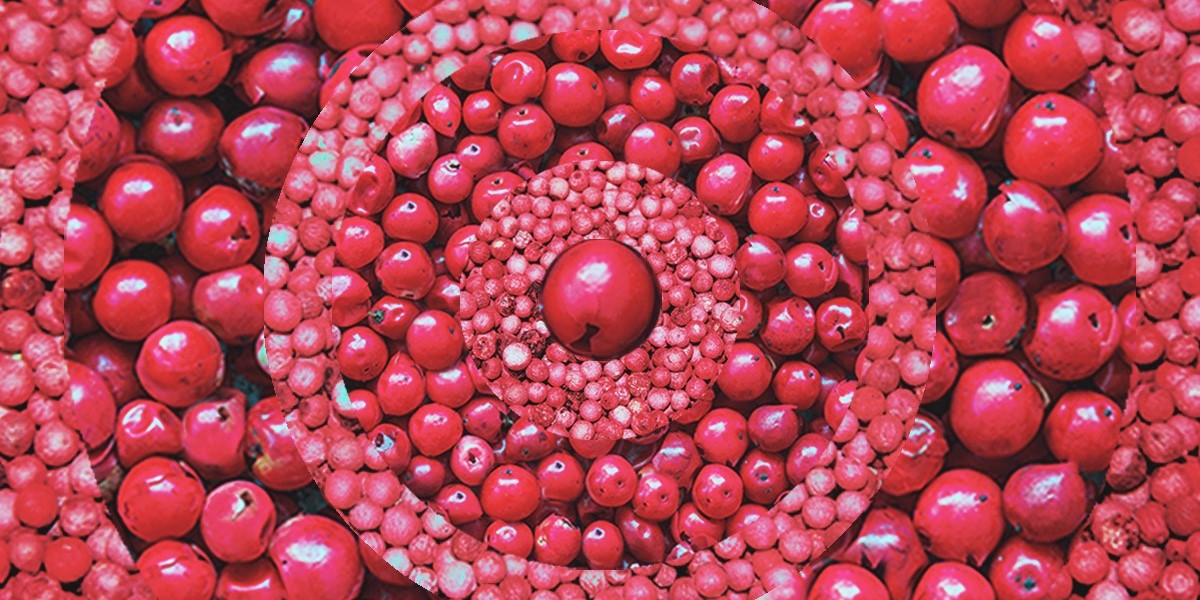
Pretty in… Pink Pepper
She lives in the place in the side of our lives
Where nothing is ever put straight
She turns herself round and she smiles and she says
This is it, that's the end of the joke
And loses herself in her dreaming and sleep
And her lovers walk through in their coaches
Pretty in pink, isn't she?
Here we go: let me introduce you to another unusual note, Pink Pepper. The first odd thing about her is her botanical name: Schinus Terebinthifolius (or -folia) or Schinus Molle and you can find her in the cashew family, Anacardiaceae, that is native to subtropical and tropical South America, particularly in Bolivia, Peru and Chile, and cultivated later on in Brasil. In other words: despite the common name, it’s not pepper, it’s not related to it and it’s not even a spice. It’s a cashew. Like peanuts – but I wouldn’t suggest snacking on it.
Moving from that, pink pepper grains are harvested at full maturity, usually in late autumn, and dried in the sun both for food use (so nice and decorative as well) and the perfume industry: you can proceed to extraction processes to obtain the essential oil, among which the methodology that uses carbon dioxide as a solvent as a supercritical fluid stands out and allows to obtain the finest quality of oil, the Baies Rose Co2.
And how can we define the scent of this oil? To me, it has a combo of sharpness and freshness that reminds of grapefruit, or some citrus. Very far from black pepper or other spices. Black pepper is darker and somehow earthy, while pink pepper adds radiance and fun, and probably this is the reason why it pairs particularly well with citrusy notes, flowers (like rose, iris and jasmine) and also ginger, especially in the head notes mix – the blend that makes you smile and instantly fall in love with that fragrance.
Pink pepper is like a sparkle that lights up the whole composition.
It’s like an unexpected blink in a crowded room.
It’s an optimistic thought in a dull day.
Pink pepper is a relatively recent entry in perfumery, it doesn’t belong to the so called ‘traditional’ notes: the first fragrances can be traced back in the Nineties; but it has quickly become very popular thanks to its power to give a bright, pretty facet to any perfume.
GENERAL DISCLAIMER
Although the information contained in this document is presented in good faith and believed to be correct, Moellhausen makes no representations or warranties as to the completeness or accuracy of the information. This document is provided on an “as is” basis. No representations or warranties, either express or implied, of fitness for a particular purpose are made herein with respect to information or products to which information refers. Moellhausen shall not be liable for any irresponsible, improper or illegal use, direct or indirect, of the information or the products represented herein and it shall not be liable for any damage arising from any use in connection therewith.
©Copyright 2018, by Moellhausen S.p.A – All Rights Reserved. Any review, retransmission, spreading or other unauthorized use of, or taking of any action in reliance upon, this information is prohibited.



